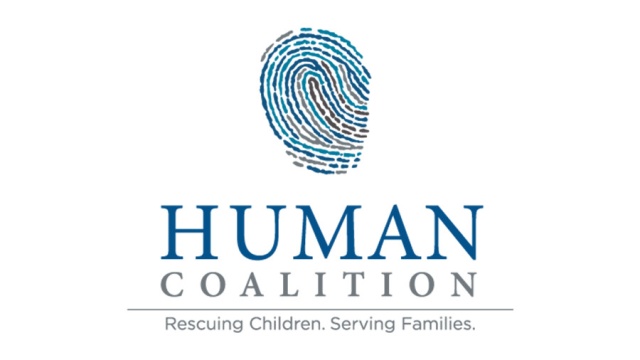Chelsey Youman currently serves as the Texas State Director and National Legislative Advisor for Human Coalition, a pro-life organization that serves women at the clinical level and has a public policy arm.
“We work to advance pro-life policies at the state and federal level,” Youman explained to The Daily Citizen at the recent National Religious Broadcasters Conference. And this year the organization has two large priorities.
“The first is the Every Mother Matters Act, which we’ve coined as ‘EMMA.’ It’s a bill that is based on the wealth of knowledge we have from serving women, day in and day out,” she said. “Look, if Roe v. Wade is never overturned, or even if it is, we have 60,000 women in the state of Texas alone who are thinking about abortion and need help. And so, how can we decrease the demand from abortion, regardless of what the courts are going to do.”
Women who are thinking about abortion have a variety of motivations. From concerns over how they will finish their education, family and romantic relationships, and finances and their careers, women who have an unplanned pregnancy struggle and are often scared about how they will handle the additional pressure of being a mother and raising a child.
EMMA would help by offering women a lifeline, a number that they can call that can help them in whatever way possible.
“We’re going to give them an offer of assistance,” Youman said. “Do you need safe house? Do you need a job? Do you need domestic violence assistance? There’s also a human trafficking screen. So, we really tried to think of it all from the perspective of our clients, the women we know and love and serve.”
The bill has been introduced in Texas, where it failed to make it through this latest session, and Arkansas, where it passed.
The biggest news from Texas this year is the passing of its Heartbeat Bill, which is different and unique from other heartbeat legislation, and hopefully is difficult to legally challenge.
Youman explained: “Texas is the first Heartbeat Bill of its kind. It’s completely different, outside-the-box, legally strategic approach. It’s really difficult bill to challenge because it’s enacted by private citizens, like you and me who care about life and children.
“We would love to see this heartbeat bill passed in other states or older heartbeat bills amended to use this language because we believe that is very constitutionally sound.”
Instead of making an abortion a criminal offense, like most heartbeat bills, Texas’ Heartbeat Bill allows any citizens to sue abortionists in civil court. Since the state is not enforcing the law, it gives the citizens the power to address the and challenge abortionists directly.
“The Texas Heartbeat Bill is enforced by citizens like you and me, organizations like mine,” Youman said. “Every single child that is aborted with a heartbeat, you could sue on behalf of that child. There’s a precedent for this, it’s called citizen attorney generals.”
Imagine if a heartbeat bill like this was passed in every state. Abortionists would be out of business almost instantly because pro-life citizens would be able to advocate on behalf of the preborn everywhere.
This year has been unprecedented in terms of pro-life legislation, with almost 100 bills passed in local and state governments throughout the country. Roe v. Wade is more vulnerable than it’s ever been before.
“I think it’s a matter of time,” Youman shared. “There’s a big 15-week case out of Mississippi that the court will hear this term. So please be praying for that because I think we’re going to see a change in Roe in the next few years, and Texas’ heartbeat bill is a constitutionally sound. The whole goal was to keep this in the hands of the citizen and keep it out of the court systems.”
And a big change to Roe might be coming. The Supreme Court recently decided to pick up a case from Mississippi, which bans abortion at the 15th week of pregnancy because of concerns over preborn pain. The case is also raising the question of viability.
“I think viability is an ever-moving target as science and technology and medicine develop,” Youman explained. “It’s kind of an arbitrary line in the sand that was traditionally created, it wasn’t something that the medical community really decided. But I think the more important point is that whether the child is four weeks old or six weeks old or 15 weeks old or completely ‘viable,’ it is a human child. It has human DNA.
“In the last 47 years since Roe was rendered, we know so much more about the preborn. That they feel pain at 15 weeks that they have heartbeats at six weeks that they have brainwaves and neural activity so early on that they can hear their mother’s voice in their womb. We now know this isn’t a clump of cells. That’s such an outdated, unscientific, horrible way to view a human life in the womb, that’s just a little life, it’s just a little human, but it’s still very much a human.”
That’s why pro-life activists remain so passionate about the issue of life and the importance of protecting not only preborn babies, but every human from the moment of conception to natural death.
“At the end of the day, humans matter,” Youman said. “We know this because we are Christians, we are believers and we believe that God created every life with a divine purpose and He loves that life and that because of that, life matters. So, whether it’s someone who can’t take care of themselves at the age of 80, or someone who at the age of 12 has a disability and they can’t take care of themselves, they’re still human and they’re still worthy of protection.”
Picture from Human Coalition.






